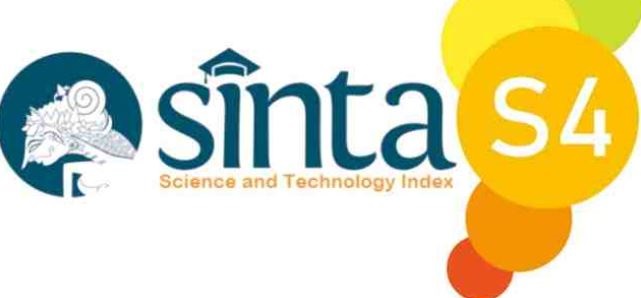The effect of Planned Behavior Theory on Corruption Intention Intracampus Organization
 ),
), (1) Universitas Negeri Padang
 Corresponding Author
Corresponding Author
Copyright (c) 2020 Nur Ema Zaka Dian
DOI : https://doi.org/10.24036/rapun.v11i2.109966
Full Text:
 Language : en
Language : en
Abstract
Keywords
References
Agustiani, R. A. (2015). Intensi korupsi ditinjau dari norma subjektif dan durasi keanggotaan pada aktivis partai politik GK, GR, serta PI di kabupaten tegal (Bachelor Thesis). Retrieved from http://repository.unissula.ac.id/2921/2.pdf.
Ajzen, I. (1991). The theory of planned behavior. Organizational Behavior and Human Decision Processes, 50, 179–211.
Bicchieri, C., & Ganegoda, D. (2017). Determinants of corruption: A sociopsychological analysis. In P. M. Nichols & D. C. Robertson (Ed.), Thinking about Bribery: Neuroscience, Moral Cognition and the Psychology of Bribery (pp. 179–205). Cambridge University Press, doi:10.1017/9781316450765.008
Ferdinand, A. T. (2002). Structural equation modeling dalam penelitian manajemen. Seamarang: Badan Penerbit UNDIP.
Haryono, S. (2016). Metode SEM untuk penelitian manajemen AMOS LISREL PLS. Bekasi: Intermedia Personalia Utama.
Hasan, I. (2004). Analisis data penelitian dengan statistik. Jakarta: Bumi Aksara.
Hayati, N. (2018). Pengaruh spiritualitas dan hexaco personality terhadap intensitas perilaku korupsi pada mahasiswa (Bachelor's Thesis). Retrieved from http://etheses.uin-malang.ac.id/13802/1/15410209.pdf.
Hendra, F. (2018). Peran organisasi mahasiswa dalam meningkatkan mutu pembelajaran keterampilan berbahasa arab. Arabiyat: Jurnal Pendidikan Bahasa Arab Dan Kebahasaaraban, 5(1), 103–120.
Kahneman, D., & Tversky, A. (1979). Prospect theory: An analysis of decision under risk. Econometrica, doi:10.15957/j.cnki.jjdl.2009.07.004
Köbis, N. C., Van Prooijen, J. W., Righetti, F., & Van Lange, P. A. M. (2016). Prospection in individual and interpersonal corruption dilemmas. Review of General Psychology, doi:10.1037/gpr0000069
Lambsdorff, J. G. (2006). Consequences and causes of corruption-what do we know from a cross-section of countries? In S. Rose-Ackerman & T. Soreide (Eds.), International Handbook on the Economics of Corruption (pp. 3–51). Cheltenham: Edward Elgar.
Polinsky, A. M., & Shavell, S. (1999). The economic theory of public enforcement of law. National Bureau of Economic Research. Retrieved from https://www.nber.org/papers/w6993
Powpaka, S. (2002). Factors affecting managers’ decision to bribe : An empirical investigation. Journal of Business Ethics, 40, 227–246.
Puspitasari, Y. R., Haryadi, B., & Setiawan, A. R. (2015). Sisi remang pengelolaan keuangan organisasi mahasiswa. Jurnal Akuntansi Multiparadigma, 6(1), 133–144. doi:10.18202/jamal.2015.04.6011
Rabl, T., & Kühlmann, T. M. (2008). Understanding corruption in organizations - development and empirical assessment of an action model. Journal of Business Ethics, doi:10.1007/s10551-008-9898-6
Rokhmah, S. N., & Putri, J. T. (2018). Pengaruh role model dan religiusitas terhadap perilaku antikorupsi pada mahasiswa organisatoris di jawa timur. Jurnal Psikologi Dan Psikologi Islam, 15(2), 26–33.
Santoso, S. (2018). Konsep dasar dan aplikasi SEM dengan AMOS 24. Jakarta: Elex Media Komputindo.
Sartika, Y. D., & Hudaniah. (2018). Gaya hidup hedonis dan intensi korupsi pada mahasiswa pengurus lembaga intra kampus. Jurnal Ilmiah Psikologi Terapan, 06(02), 213–231.
Sarwono, J. (2010). Pengertian dasar structural equation modeling (SEM). Jurnal Ilmiah Manajemen Bisnis Ukrida, 10(3), 173–182.
Sofia, A. I., & Herdiansyah, H. (2011). Penelitian pengaruh attitude toward behavior, subjective norm, dan perceived behavioral control terhadap intensi perilaku anti-korupsi pada mahasiswa peserta matakuliah anti-korupsi universitas paramadina. Jurnal Universitas Paramadina, 8(1), 1–13.
Sofia, A. I., Karsona, A. M., Utari, I. S., Kurniadi, Y., Bura, R. O., Puspito, N. T., Elwina S, M., Laksamana B, G., & Wibowo, A. P. (2011). Pendidikan anti-korupsi untuk perguruan tinggi (N. T. Puspito, M. Elwina, I. S. Utari, & Y. Kurniadi (eds.)). Kementerian Pendidikan dan Kebudayaan RI. http//dikti.kemdiknas.go.id
Wade, C., & Tavris, C. (2007). Psikologi. Jakarta: Erlangga.
Wahyuni, Z. I., Adriani, Y., & Nihayah, Z. (2015). The Relationship between religious orientation, moral integrity, personality, organizational climate and anti corruption intentions in indonesia. International Journal of Social Science and Humanity, doi:10.7763/ijssh.2015.v5.570
Waluyo, M. (2016). Mudah cepat tepat penggunaan tools AMOS dalam aplikasi SEM. Surabaya: UPN "Veteran" Jawa Timur.
Wijayanto, A. R. (2007). Analisis faktor-faktor yang mempengaruhi komitmen pelanggan melalui peran tenaga penjual (studi kasus pada PT YMKI di wilayah Jawa Tengah dan DIY (Master's Thesis). Retrieved from http://eprints.undip.ac.id/16498/
Zhao, H., Zhang, H., & Xu, Y. (2016). Does the dark triad of personality predict corrupt intention? the mediating role of belief in good luck. Frontiers in Psychology, doi:10.3389/fpsyg.2016.00608
 Article Metrics
Article Metrics
 Abstract Views : 1914 times
Abstract Views : 1914 times
 PDF Downloaded : 398 times
PDF Downloaded : 398 times
Refbacks
- There are currently no refbacks.
Copyright (c) 2020 Nur Ema Zaka Dian

This work is licensed under a Creative Commons Attribution-NonCommercial 4.0 International License.






